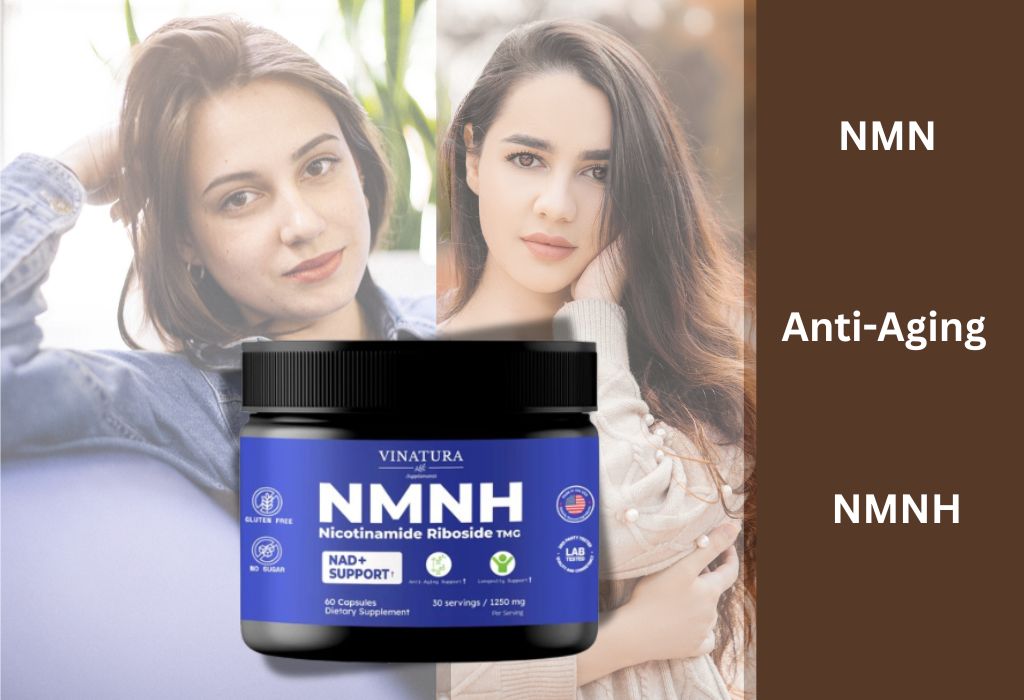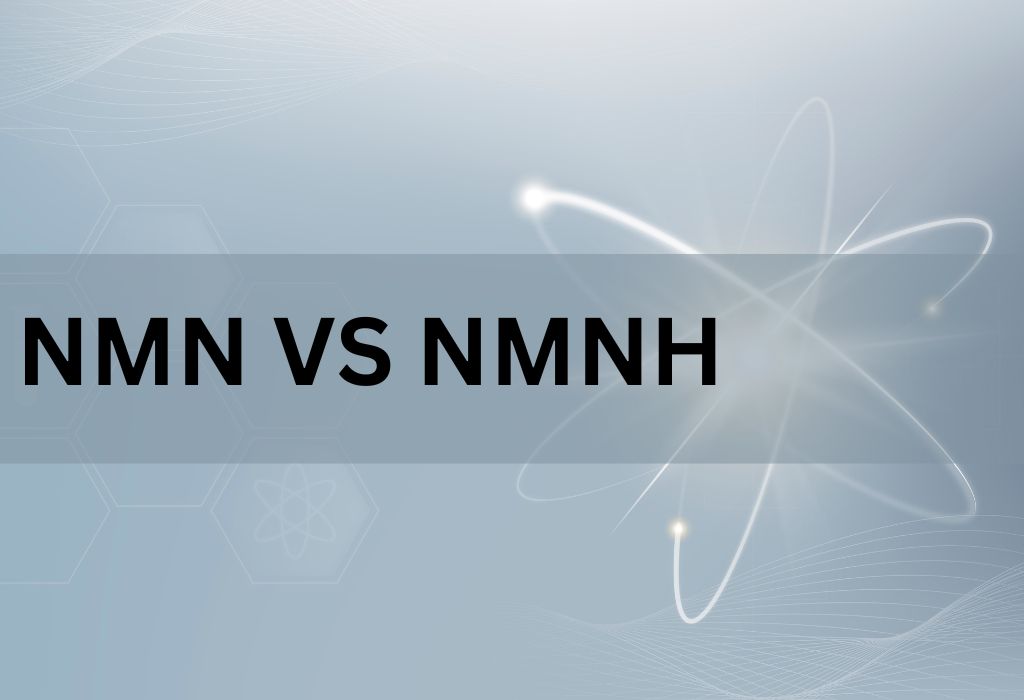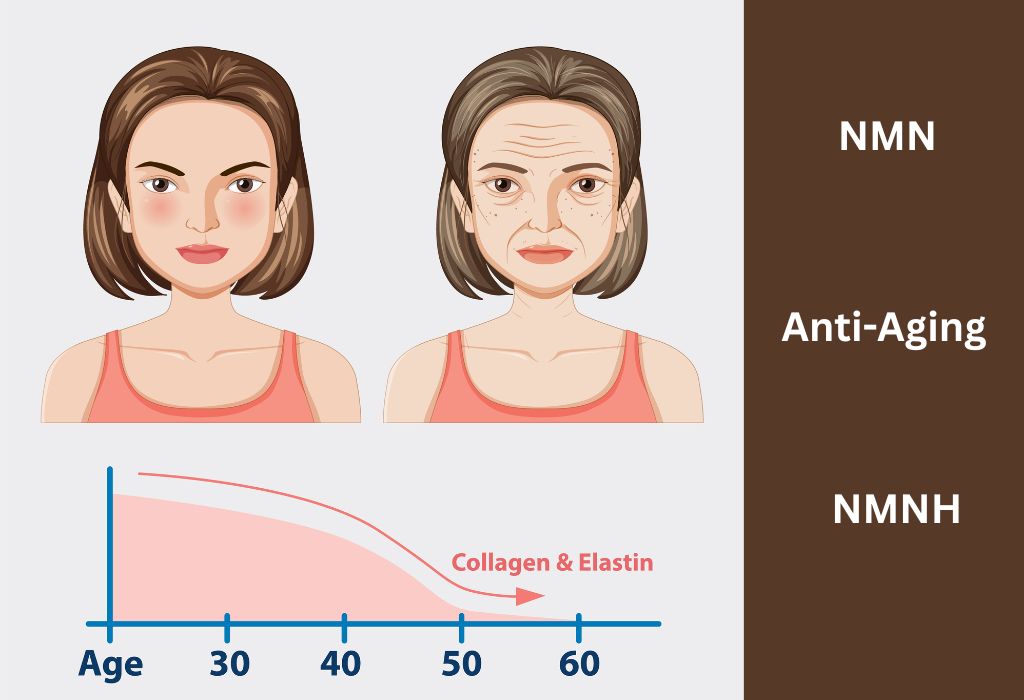
What is NMN vs NMNH for anti aging
Introduction
When it comes to anti-aging and cellular health, NMN and NMNH are two powerful NAD+ precursors that often get compared. But what exactly are they, and how do they differ? In this article, we break down the science behind NMN vs. NMNH, explore their unique benefits, and help you decide which one might be right for your health.
What is NMN?
NMN, short for nicotinamide mononucleotide, is a compound naturally produced in the body and closely linked to vitamin B3. It serves an essential function by helping increase levels of NAD+, a molecule crucial for energy production, cell health, and slowing down the aging process.
Our bodies rely on NAD+ for vital tasks like metabolism, DNA repair, and overall cellular maintenance. However, NAD+ levels tend to decline as we age. That’s where NMN comes in. When consumed, NMN is converted into NAD+, helping to replenish these levels and support overall cellular function.
NMN is found in small quantities in foods such as avocados, broccoli, and milk. Despite its limited presence in the diet, it has become a popular supplement, often taken to support energy levels, brain function, and heart health.
While more studies are still underway, early research points to NMN as a promising ally in promoting healthy aging and long-term vitality.
What is NMNH?
NMNH stands for nicotinamide mononucleotide hydrogen, a compound closely related to NMN but with a slight chemical twist—it carries an additional hydrogen molecule. This subtle change makes NMNH a "reduced" version of NMN and may boost its potential to elevate NAD+ levels even faster.
Due to this enhanced potential, some researchers are now exploring NMNH supplement for anti-aging as a next-generation option to support cellular repair and longevity. Early findings suggest it could have a more powerful effect on cellular energy and overall health than NMN.
The added hydrogen might improve how stable and effective it is once inside the body, but more scientific evidence is needed to confirm this.
Because it’s not yet well-studied or widely used, NMNH's safety profile and regulatory approval remain unclear. If you're thinking about trying NMNH, it’s best to speak with a healthcare provider first to ensure it’s a safe fit for you.
NMN vs. NMNH: What's the Difference?

Both NMN and NMNH help your body produce NAD+, an essential molecule that keeps your cells functioning properly. Although they serve similar roles, there are key differences between the two, especially in terms of research, structure, and safety.
Scientific Research
NMN has been widely researched in both human and animal studies, giving it a more established scientific background. For instance, a study in Cell Metabolism showed that NMN enhanced energy production and improved insulin response in aging mice.
In contrast, NMNH is still being investigated, with most findings limited to lab or animal experiments. Because of this, there’s significantly less evidence available. At present, NMN is backed by more solid and reliable research.
Structure and How They Work
Chemically, NMNH is a "reduced" form of NMN, it has one more hydrogen atom. This slight variation affects how it’s absorbed and processed by the body.
Some early research suggests NMNH might be absorbed more quickly and could potentially increase NAD+ levels faster. However, these findings are still preliminary. NMN’s mechanisms are already well-documented and trusted.
Safety and Availability
NMN is a popular supplement and has been tested in human clinical trials, demonstrating good safety and tolerance.
On the other hand, NMNH is less widely available, and reliable safety information is still limited. Until further research is conducted, it's best to use NMNH carefully and with awareness.
NMN vs NMNH: The Benefits Comparison

NMN and NMNH are both gaining interest for their potential to promote healthy aging and support cellular function. While they share some common ground, each brings its own strengths to the table. Here's a clear look at what they might offer.
Boosting Energy and Metabolism
NMN has been shown to help increase levels of NAD+, a vital molecule involved in how our bodies generate and use energy. Studies in older animals have reported improved metabolism and higher activity levels when NMN is added to their routine.
NMNH, on the other hand, is still under early investigation. Its chemical makeup suggests it may raise NAD+ levels more rapidly, possibly leading to quicker energy benefits. However, more studies, especially in humans, are needed to back this up.
Supporting Heart and Blood Vessel Health
When it comes to heart health, NMN appears to lead the way. Research in animals has found that it can enhance blood circulation and improve the elasticity of aging arteries, potentially supporting long-term cardiovascular health.
NMNH may offer similar cardiovascular benefits, but current studies are limited. At this point, NMN is the better-researched option in this area.
Cardiovascular Health
When it comes to heart and blood vessel support, NMN has shown promise. Animal research indicates it may help improve circulation and keep arteries flexible with age.
NMNH could potentially offer the same advantages, but current evidence is limited. So far, NMN stands out as the better-supported option for heart health.

Brain and Cognitive Function
Mental sharpness often declines with age, and NMN may help slow that process. Some studies in animals link it to improved memory and brain function over time.
NMNH might also be beneficial, particularly if it raises NAD+ more efficiently. However, without direct studies in humans, its cognitive effects remain theoretical for now.
Cellular Repair and Longevity
Both compounds are connected to NAD+, which plays a key role in DNA repair and cellular maintenance. NMN has been shown in animal studies to help repair damage caused by aging and environmental stress.
NMNH could provide similar benefits, but it hasn't been studied as extensively. More evidence is needed to draw clear conclusions about its anti-aging potential.
Metabolic Health and Weight Control
NMN has also been linked to better metabolic balance, including improved insulin sensitivity and reduced fat buildup in animal models.
While NMNH may share these benefits, there’s currently less data to support its use for metabolic health. NMN remains the more researched option in this area.
NMN vs NMNH: Which One Is Better?
At this stage, NMN stands out as the more reliable option for boosting NAD+ levels. It has been extensively studied, and its safety and effectiveness are well-established.
On the other hand, NMNH is a newer contender that shows potential for quicker NAD+ replenishment. However, the research behind it is still in early stages, and there’s not enough data yet to fully support its long-term safety or benefits.
For now, NMN remains the top pick among NAD+ precursors, thanks to strong scientific backing related to energy production, metabolic health, and aging support. NMNH may eventually prove to be a powerful alternative, but until more human studies are available, NMN continues to be the safer and more trusted option for those looking to enhance their well-being.
Vinatura NMNH, Nicotinamide Riboside & TMG - Best NMNH Supplement 2025
Vinatura NMNH with Nicotinamide Riboside (NR) and Trimethylglycine (TMG) is a standout supplement for those seeking to naturally enhance NAD+ levels. It’s specially formulated for individuals focused on maintaining overall health and vitality, thanks to its synergistic blend of three key ingredients: NMNH, NR, and TMG.
What makes Vinatura NMNH supplement particularly noteworthy is its commitment to quality and safety. The manufacturer shares a Certificate of Analysis verified by an ISO/IEC 17025 accredited lab, which confirms both purity and composition. Produced in the USA in a cGMP-certified facility, the supplement is non-GMO, allergen-free (no soy, wheat, or dairy), and has undergone third-party testing for added assurance.
Pros:
- Includes NR and TMG to support healthy aging and cellular energy.
- Third-party tested with a transparent Certificate of Analysis for identity, microbes, and heavy metals.
- Produced in a certified facility under strict quality standards.
- Free from major allergens and preservatives, making it suitable for various diets.
Cons:
- Some users weren’t satisfied with the product’s packaging.
If you're looking for a high-quality, science-backed way to support your NAD+ levels and promote healthy aging, Vinatura NMNH with NR & TMG is a smart choice. Try it today and experience the difference in energy, clarity, and overall vitality.

Comments (0)